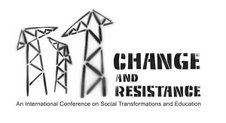Dr Łucja Biel
Department of Translation Studies and Intercultural Communication
Institute of English
University of Gdansk
Poland
The paper discusses the current language policy (unilingualism) and shifts in attitudes towards foreign languages under political and economic transformations. Owing to frequent contacts, Polish was to a certain degree affected by Russian in the Communist era. In the late 80ties and the 90ties an unparalleled number of borrowings from English entered Polish, in line with the global trend. In the mid 90ties it was felt necessary to protect Polish against the growing imperialism of English; hence, to protect the national identity in the globalisation process. As a result, the Polish Language Protection Act 1999 was adopted, imposing an obligation to use Polish in legal transactions (contracts), press advertisements, product descriptions, etc. The purist attitudes stem to a large degree from the historic experience when Poland was without a state for 123 years and restrictions on the use of Polish were regarded as a threat to the national identity.
The high impact of English on Polish is also due to the fact that English has become the dominant foreign language learnt in Poland. In the Communist era Russian was a compulsory language at primary and secondary schools (it is spoken by ca. 23% of Poles). In the early 90ties the prestige of Russian was declining rapidly; it was no longer an obligatory subject and a large number of Russian teachers had to requalify. The shift in foreign language preferences is well visible in the discrepancy between the number of pupils learning English and Russian at primary and secondary schools: English (4m), German (2m), Russian (0.4m). It is also worth noting that in the period of 2000-2004 the number of pupils learning Russian further decreased by more than 50%, even though it is relatively easy for a Pole to learn Russian. This trend is confirmed by the choice of a foreign language at the secondary school graduation examination: 76% English, 18% German, 6% Russian, 1% French. Therefore, the Western languages are chosen by 94% of students, symbolising Poland’s redirection towards the West. The popular approach “you have to know a language of your enemy and of your friend”, where German was officially supposed to be a language of enemy and Russian was a language of friend, is no longer applied. What counts are prospects on the job market.
Knowledge of foreign languages is an important skill in Postcommunist Poland in light of the high inflow of foreign direct investments, in particular business process offshoring. Being one of the largest markets in the EU, the Polish market is attractive to foreign investors due to its low labour costs, access to well-qualified and young human resources. Poland’s accession to the EU means increased contacts with other official languages and gives access to the Single Market with ca. 500 million consumers. Furthermore, Polish is an official language of the EU and under the principle of multilingualism all relevant legislative and other texts have to be translated into Polish, increasing the demand for LSP translators. The article will analyse other political, economic and cultural changes that generate the demand for translators, in particular LSP translators and teachers, and require changes in university-level language education.
Subscribe to:
Post Comments (Atom)

No comments:
Post a Comment